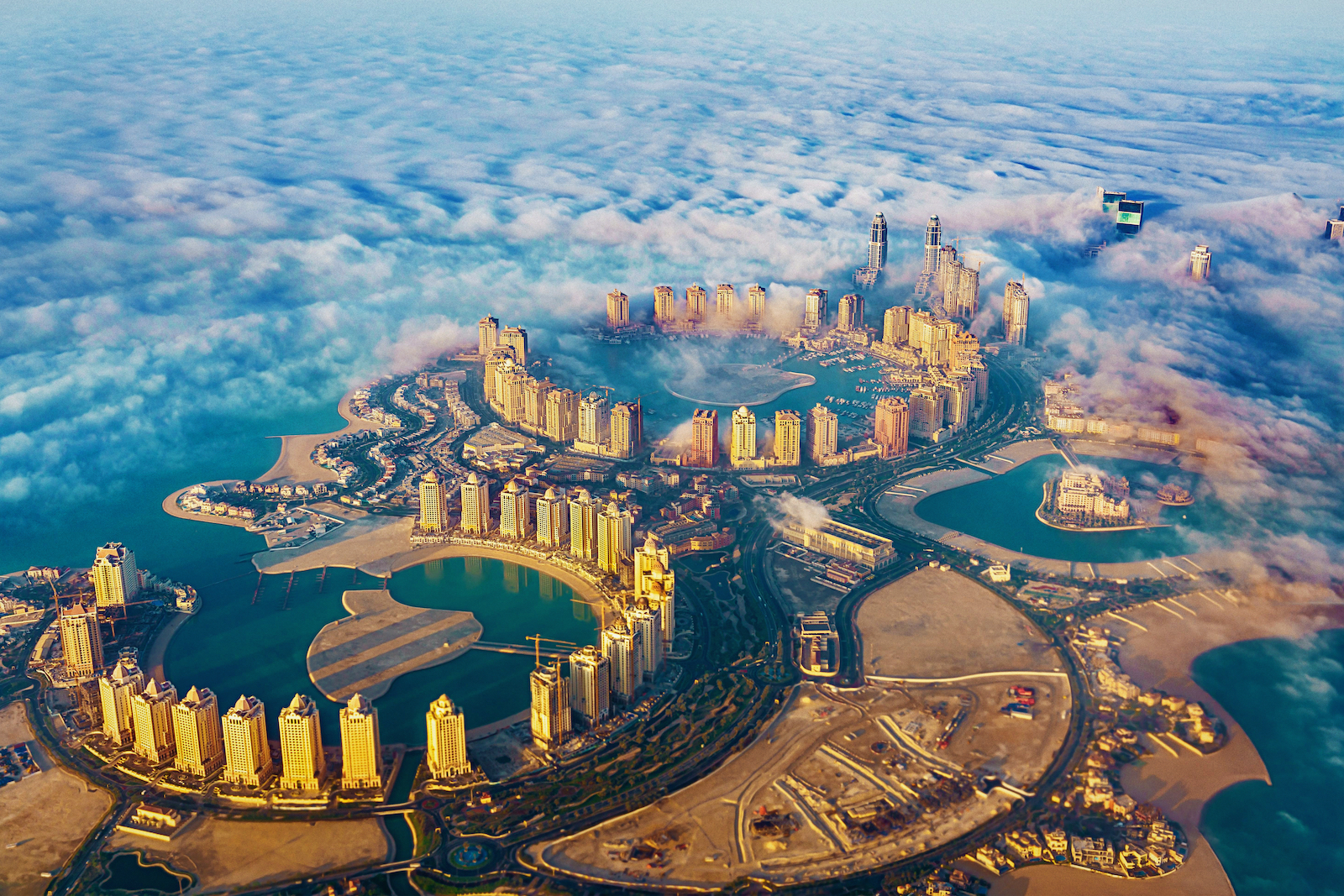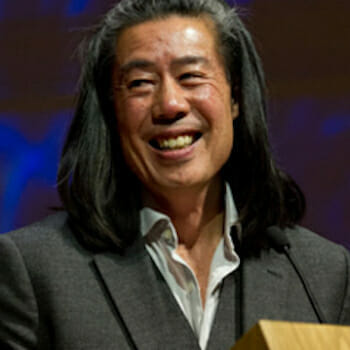
Hybrid Modernity Helps Explain Qatar
Now that the FIFA World Cup has concluded, it’s time to examine the contradictions in Qatar that the games uncovered.
Three things need to be said immediately.
Firstly, the often correct but one-dimensional attacks on Qatar’s human rights record simply strengthened the country’s Islamic conservatives – “If the world is going to attack us like this, why should we even try to be modern?” – and almost created the very thing that Western ‘progressives,’ assessing the world by their own standards, thought they were condemning. The sudden ban on alcohol at matches, previously agreed to, was the work of such conservatives stung by these criticisms.
Secondly, the secular Qatari authorities were amazingly clumsy in how they responded in public to international commentaries, criticisms, and condemnations. And they had certainly been careless and negligent about the rights and safety of their foreign construction workers.
Thirdly, under the thunder of the controversies, with much noise made by those who had never been to Qatar or researched the country, there have been impressive Qatari contributions to human rights, open diplomacy, and the visibility and involvement of women in public life.
What is immediately outstanding about Qatari public life, and this has been of immense benefit to the outside world, has been the press freedom inherent in Al Jazeera’s coverage of world affairs. Al Jazeera’s journalists are routinely persecuted and imprisoned by other Arab regimes. Its standards of research are high, and its 24-hour news broadcasts are followed internationally alongside those of the BBC and CNN. With that said, it, unfortunately, holds back from criticising the Qatari ruling elite but remains a tour de force in the region.
The second most visible and influential aspect of Qatar’s public relations has been the Doha Forum – the key annual diplomatic gathering where, apart from the elite speeches and interviews on-stage, are the private side meetings between high-level delegations that cannot be broadcast publicly. U.S. and Iranian delegations at high ministerial levels hold meetings that ‘never took place.’ But these deniable meetings keep channels of communication open and set up the possibility of public dialogue. John Kerry used these to help set up the nuclear negotiations with Iran during the Obama administration.
The third public institution, long headed by a female chief executive, is the Qatar Foundation, with its liberal grants scheme funding research in hundreds of Western universities. Part of a huge investment in higher education locally and internationally, the country’s university quarter is like a small city.
And of course, when Kabul fell to the Taliban, a huge percentage of the flights evacuating Afghan refugees made use of Qatari facilities for refueling, temporary refuge, and onward transit to small towns in the United States.
Two things that deserve a little more commentary: diplomatic contacts with Iran, and women in senior positions. Almost entirely because of Qatar’s determination to maintain itself as a channel for ongoing dialogue and diplomatic communication with Iran, Saudi Arabia, seeking to isolate Iran, launched an economic blockade of Qatar in 2017, hoping to bring the small Gulf state to its knees within two weeks.
The Qataris, led by a cluster of young executives, largely in their 30s, defeated the blockade and ‘normal’ relations were restored in 2021. At that time, Lolwah Rashid Al-Khater was the spokesperson for the foreign ministry and wielded considerable coordinating authority in the planning to negate the blockade. Western-educated, in 2019 Al-Khater was promoted to Assistant Minister.
But that immediately raises the other side of the ledger, pounced upon by critics that arose on the eve of the World Cup. How on earth did the games’ planners, with degrees from universities in the United States and Europe, become so negligent, particularly about workers’ rights and workers’ safety?
The construction of the stadia involved sub-contracts to a range of South Asian providers – who had no problem recruiting workers who could not find decent work or wages in their own countries. At first, the Qataris blamed the sub-contractors, but this was a shallow attempt at deflection of criticism since, of course, the terms imposed on the sub-contractors in the first place, by the Qatari authorities, should have been specific about working and safety conditions – both for the sake of labour values in themselves and with a forecast in mind of likely criticism if they did not. Both for real and for cynical reasons, the technocratic class failed to consider the need for a showpiece, not only in sport but in national reputation as it pertained to the welfare of migrants, even if these were ‘only’ labourers.
Most of the population of Qatar are not citizens. Everyday businesses, providers of goods and services from basic necessities to luxuries, are owned and operated by long-term residents from around the world who, while living in Qatar, are curious without defined and assured rights – despite almost all these people standing firm with Qatar throughout the Saudi blockade. The treatment of construction workers was an extension of a larger phenomenon combining both need and disregard.
Ostensibly a ‘liberal’ Islamic country, there are showpiece international sporting events that seek to demonstrate this. Female beach volleyball is one such, as is female tennis and athletics – all with varying degrees of ‘undress.’ But taking freedoms into more substantial realms of equality does meet, not so much overt religious pressure, but intricate networks of conservative religious monitoring and persecution by the engineering of sudden lack of opportunities for advancement. The louder a Qatari feminist, on behalf of her own sisters as opposed to visiting sportswomen, the more she will be shorn of any position of influence, e.g., as a university professor, television presenter, or para-statal executive.
The pressure is clandestine but leads to frequent self-policing and the acknowledgment of limits to action.
This is not to be one-dimensional about the ‘deep clerical stratum’ of Qatar. The eminent religious scholar, exiled from Egypt but given refuge and a university post in Qatar, but who has recently died, Youssef Qaradhawi, long a public font of conservatism (allied with an amazing theology of an absolute need to commit charity and give to the poor), had been inching – painfully but noticeably – towards more ‘liberal’ positions on alcohol, women’s rights, and even gay rights. The evolution and impact of these positions all carefully and theologically argued, would have been very interesting in their impact upon thought in general. No other clerical scholar in Qatar was equal to Qaradhawi in terms of acknowledged learning and authority.
But what is it that really holds back Qatar from any real, even if slow, path to modernity? It is here the same as in any other Gulf state, and that is its commitment to a feudal social structure. The women who hold high office come from powerful families. But almost everyone, men included, comes from high or at least respected families. Foreign residents, migrant labourers, and stadium construction workers, do not. The absence of rights is compensated for by the presence of privilege. But feudalism with modern glosses, particularly the gloss of technocracy, remains feudalism.
In all of this, the real contributions of Al Jazeera, the Doha Forum, the channels for negotiation as opposed to confrontation with Iran, the Qatar Foundation, and the relief and charitable work toward Afghan refugees fleeing the ‘harder Islam’ of the Taliban – sit as if amidst a real but functioning contradiction, a hybridity, something easy to condemn and hard to understand. Hard to appreciate in its own terms. But Qatar has never really sat down to say precisely and deeply what its own terms are. It has never interrogated itself as a contradiction. It is a functioning hybridity, and one probably relieved the World Cup is over and that the actual football matches were themselves often amazing.

